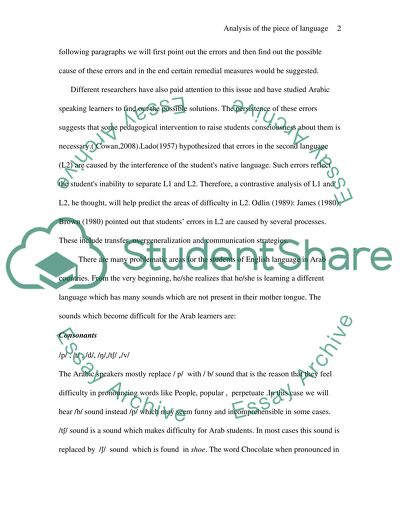Cite this document
(Errors Made by an Arab Learner of English as a Second Language Case Study, n.d.)
Errors Made by an Arab Learner of English as a Second Language Case Study. Retrieved from https://studentshare.org/education/1554788-analyzing-an-els-learner-piece-of-language
Errors Made by an Arab Learner of English as a Second Language Case Study. Retrieved from https://studentshare.org/education/1554788-analyzing-an-els-learner-piece-of-language
(Errors Made by an Arab Learner of English As a Second Language Case Study)
Errors Made by an Arab Learner of English As a Second Language Case Study. https://studentshare.org/education/1554788-analyzing-an-els-learner-piece-of-language.
Errors Made by an Arab Learner of English As a Second Language Case Study. https://studentshare.org/education/1554788-analyzing-an-els-learner-piece-of-language.
“Errors Made by an Arab Learner of English As a Second Language Case Study”, n.d. https://studentshare.org/education/1554788-analyzing-an-els-learner-piece-of-language.


